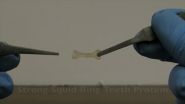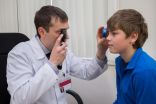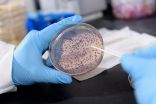(Press-News.org) MRI scans and other tools to detect and diagnose dementia are helpful but not definitive - according to new research from the University of East Anglia.
A report published today in The Lancet Neurology evaluates for the first time how well different types of brain imaging tests work to detect Alzheimer's and predict how the disease will progress.
The results show that the accuracy of brain imaging must be improved before it can be rolled out on a scale that could be useful to healthcare providers and patients.
Co-author Prof Chris Fox says that overplaying the current benefits of imaging could create unnecessary healthcare costs for the NHS.
And that 'patient burden' - caused by tests carried out, stress, and the potential anxiety associated with being diagnosed before symptoms appear - should also be taken into account.
Prof Fox, from UEA's Norwich Medical School, said: "Dementia is one of the greatest health challenges facing the NHS. By 2025 the number of people with dementia is expected to reach 1 million in the UK alone.
"The spectrum of dementia stages is very broad and everybody is different. Some newly diagnosed patients don't yet show obvious signs of memory loss, whereas others may have severe dementia at the time a diagnosis is made.
"Advances in neuroimaging research have revealed that the disease progresses in the brain over time. Accumulating evidence suggests that changes in the brain can be detected years before the disease manifests clinically.
"This has fuelled a great deal of interest in the use of brain imaging to detect Alzheimer's disease and predict how and when dementia will develop in patients who are at risk.
"The number of new diagnostic and prognostic tools for dementia is steadily increasing and there are a lot of different scanning techniques currently being used in clinical research settings.
"These include different types of MRI scans, which use strong magnetic fields and radio waves to produce detailed images of the inside of the brain, and Positron Emission Tomography (PET) scans, which use a small amount of a radioactive drug, or tracer, to test how tissues in the brain are actually functioning.
"We wanted to find out which procedures are useful for patients and which ones are not."
The international research team assessed how well the most widely-used imaging techniques measure the pathological changes expected in the brain and the accuracy with which they can predict an individual's clinical outcome.
They also assessed 'multimodal imaging' - which combines different types of MRI and PET scans to give a more detailed diagnosis.
The report also outlines the necessity of additional research before these types of scans can successfully be used in clinical practice and routine care.
Key findings:
Imaging assessments of the pathological state of a patient's brain might be able to predict the risk of future development of Alzheimer's in someone with mild cognitive impairment.
MRI scans can reliably be used to differentiate mild to moderate dementia stages from both normal ageing and from other neurodegenerative diseases. This method is more accurate compared to memory testing alone, but less sensitive than PET scans.
PET scans can successfully exclude patients who do not have Alzheimer's disease from treatment.
PET scans which use fluorodeoxyglucose (FDG) as a tracer can be used for neuronal loss, and are useful when a reliable short-term prediction of cognitive decline is needed. The low cost of this type of tracer could help efficient use in the NHS.
Multimodal imaging could help clinicians make a diagnosis and decide about potential therapies. Information from different types of tests would help distinguish patients facing imminent cognitive decline from those who may only have late onset decline. But there is not yet enough information available about which combinations of scans should be used for different stages of Alzheimer's.
No techniques have shown usefulness in a sample of patients from primary care to date.
Prof Fox said: "Primary care is usually a first point of contact for patients, and provides a unique opportunity for early dementia diagnosis. But evidence shows that only a small proportion of patients with dementia or cognitive impairment are recognised in this setting.
"The results of this review are promising, but the downfall is that none of these methods are sensitive or accurate enough to be rolled out into primary care. We want to see diagnostic biomarkers with a sensitivity of over 90 per cent, and specificity near 100 per cent to be reliable.
"They would also need to be non-invasive, easy, time efficient and inexpensive," he added.
'Multimodal imaging in Alzheimer's disease: validity and usefulness for early detection' is published in the September edition of The Lancet Neurology.
INFORMATION:
Here's another discovery to bolster the case for medical marijuana: New research in mice suggests that THC, the active ingredient in marijuana, may delay the rejection of incompatible organs. Although more research is necessary to determine if there are benefits to humans, this suggests that THC, or a derivative, might prove to be a useful antirejection therapy, particularly in situations where transplanted organs may not be a perfect match. These findings were published in the September 2015 issue of The Journal of Leukocyte Biology.
"We are excited to demonstrate for ...
A drop of water self-heals a multiphase polymer derived from the genetic code of squid ring teeth, which may someday extend the life of medical implants, fiber-optic cables and other hard to repair in place objects, according to an international team of researchers.
"What's unique about this plastic is the ability to stick itself back together with a drop of water," said Melik Demirel, professor of engineering science and mechanics, Penn State. "There are other materials that are self healing, but not with water."
Demirel and his team looked at the ring teeth of squid ...
A new study examining changes in gun policy in two states finds that handgun purchaser licensing requirements influence suicide rates. Researchers estimate that Connecticut's 1995 law requiring individuals to obtain a permit or license to purchase a handgun after passing a background check was associated with a 15.4 percent reduction in firearm suicide rates, while Missouri's repeal of its handgun purchaser licensing law in 2007 was associated with a 16.1 percent increase in firearm suicide rates.
The study, from researchers with the Johns Hopkins Center for Gun Policy ...
ITHACA, N.Y. - Restoring oyster reefs is not an easy task, but by digging deep and examining centuries-old reefs, marine restoration professionals may stand a better chance at bringing oysters back, said a new Cornell University and Paleontological Research Institution (PRI) study published in the August issue of the Journal of Shellfish Research.
Stephen R. Durham, a Cornell doctoral student in the field of earth and atmospheric sciences, with Gregory P. Dietl, curator of Cenozoic invertebrates at the Cornell-affiliated PRI and a Cornell adjunct assistant professor of ...
Washington, DC, September 1, 2015 - A simplified handwashing routine, with five steps instead of seven, helps to reduce sickness-related absenteeism for students with mild intellectual disability (MID), according to a study published in the September issue of the American Journal of Infection Control, the official publication of the Association for Professionals in Infection Control and Epidemiology (APIC).
The study was conducted in two special education schools in Hong Kong. Researchers from The Hong Kong Polytechnic University developed a 12-week handwashing intervention ...
September 1, 2015 - For women undergoing hysterectomy, removal of "hanging" abdominal fat and skin--a cosmetic procedure called panniculectomy--can be performed at the same surgery without increasing the risk of complications, reports a study in the September issue of Plastic and Reconstructive Surgery®, the official medical journal of the American Society of Plastic Surgeons (ASPS).
"This is among the best evidence to date regarding 30-day risk profiles, and the data suggests that the complication rates are comparable for patients undergoing combined hysterectomy ...
(Boston)--A gene linked in previous research, appears to predict more severe post-traumatic stress disorder (PTSD) symptoms as well as a thinner cortex in regions of the brain critical for regulating strong emotions and coping with stressful experiences. This study is believed to be the first to show that the spindle and kinetochore-associated complex subunit 2 (SKA2) gene may play a role in the development of PTSD.
Led by researchers at Boston University School of Medicine (BUSM), the National Center for PTSD and the Translational Research Center for TBI and Stress ...
The neutrino and its antimatter cousin, the antineutrino, are the tiniest subatomic particles known to science. These particles are byproducts of nuclear reactions within stars (including our sun), supernovae, black holes and human-made nuclear reactors. They also result from radioactive decay processes deep within the Earth, where radioactive heat and the heat left over from the planet's formation fuels plate tectonics, volcanoes and Earth's magnetic field.
Now, a team of geologists and physicists has generated the world's first global map of antineutrino emissions. ...
A new study has found that the occurrence of advanced forms of a diabetic eye disease remains low among children living with diabetes, regardless of how long they have had the disease or their ability to keep blood sugar levels controlled. Researchers are therefore recommending that most children with type 1 diabetes delay annual diabetic retinopathy screenings until age 15, or 5 years after their diabetes diagnosis, whichever occurs later. Their findings were published online today in Ophthalmology, the journal of the American Academy of Ophthalmology.
It is well established ...
A bacterium engineered to produce different pigments in response to varying levels of a micronutrient in blood samples could give health officials an inexpensive way to detect nutritional deficiencies in resource-limited areas of the world. This "bacterial litmus test," which currently measures levels of zinc, would require no electrical equipment and make results visible as simple color changes.
More than a billion people worldwide may be at risk for adequate zinc intake, but measuring zinc levels in blood samples currently requires sophisticated testing equipment not ...


